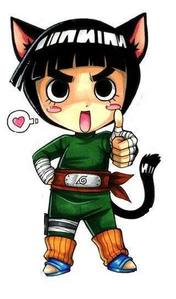 |
LunaShay said:
Chan (ちゃん?) is a diminutive suffix; it expresses that the speaker finds a person endearing. Thus, using chan with a superior's name would be condescending and rude. In general, chan is used for babies, young children, and teenage girls. It may also be used towards cute animals, lovers, close friends, hoặc any youthful woman.
Although traditionally honorifics are not applied to oneself, some young women adopt the childish affectation of referring to themselves in the third person using chan. For example, a young woman named Kanako might call herself Kanako-chan rather than using a first person pronoun. Also, the very common female name suffix -ko (〜子) may be dropped, as in Kana-chan.
San (さん?), sometimes pronounced han (はん?) in Kansai dialect, is the most common honorific and is a tiêu đề of respect similar to "Mr.", "Miss", "Mrs.", hoặc "Ms." However, in addition to being used with people's names, it is also employed in a variety of other ways.
San is used in combination with workplace nouns, so a bookseller might be addressed hoặc referred to as honya-san ("bookstore" + san), and a butcher as nikuya-san ("butcher shop" + san).
San is sometimes used with company names. For example, the offices hoặc cửa hàng of a company called Kojima Denki might be referred to as "Kojima Denki-san" bởi another nearby company. This may be seen on the small maps often used in phone sách and business cards in Japan, where the names of surrounding companies are written using san.
San can also be attached to the names of động vật hoặc even inanimate objects. For example, a pet rabbit might be called usagi-san, and cá used for cooking can be referred to as sakana-san. Both uses would be considered childish (akin to "Mr. Rabbit" in English) and would be avoided
|

|



![The Japanese suffix "-chan" is a term Những người bạn and family, usually girls, add to the end of your last hoặc first name. It means "cute", hoặc "little" in the form of endearment. [informal] The Japanese suffix "-kun" is usually at the end of male friend hoặc brother's name in the form of endearment. [informal] The Japanese suffix "-sama" is a term younger people put after someone they respect's name. It has a "ruler" hoặc "leader" meaning. [formal] "-san" is another form of respect from other people (but don't always have to be younger people). [formal] "-sempai" is used bởi children referring to upperclassmen (Another form of respect). [questionalable formality]](http://images4.fanpop.com/image/answers/1036000/1036709_1287616535259.18res_278_231.jpg)



![I also added other ones as well -san: this is the most common honorific, and is equivalent to mr., miss, ms., mrs., etc. it is the all-purpose honorific and can be used in any situation where politeness is required -sama: this is one level higher than '-san.' it is used to confer great respect. -dono: this comes from the word 'tono,' which means 'lord.' it is even a higher level than '-sama,' and confers utmost respect. -kun: this suffix is used at the end of boys' names to express familiarity hoặc endearment. it is also sometimes used bởi men among friends, hoặc when addressing someone younger hoặc of a lower station. -chan:this is used to express endearment, mostly towards girl. it is also used for little boys, pets, and even among lovers. it gives a sense of childish cuteness. sempai: this tiêu đề suggests that the addressee is one's 'senior' in a group hoặc organization. it is most often used in a school setting, wehre underclassmen refer to their upperclassmen as 'sempai.' it can also be used in the workplace, such as when a newer employee addresses an employee who has seniority in the company. kohai: this is the opposite of '-sempai,' and is used towards underclassmen in school hoặc newcomers in the workplace. it connotes that the adressee is of lower station. sensei: literally meaning 'one who has come before,' this tiêu đề is used for teachers, doctors, hoặc masters of any profession hoặc art. -[blank]: usually forgotten in these lists, but perhaps the most significant difference between japanese and english. the lack of honorific means that the speaker has permission to address the person in a very intimate way. usually only family, spouses, hoặc very close Những người bạn have this kind of permission. known as YOBISUTE, it can be gratifying when someone who has earned the intimacy starts to call one bởi one's name without an honorific. but when that intimacy hasn't been earned, it can also be very insulting]](http://images4.fanpop.com/image/answers/1036000/1036739_1287616857912.42res_400_300.jpg)



